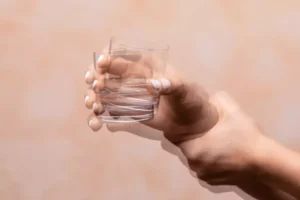Weaning Off Alcohol: Risks, Methods & Benefits
05/04/2023



 Email Marketing
Email Marketing

Alcohol withdrawal is the most dangerous form of substance withdrawal, creating unpleasant symptoms that can be potentially deadly for those with more severe symptoms. Alcohol withdrawal will last about a week to a week and a half for most people, with symptoms peaking two to three days into withdrawal. CBT focuses on discovering and changing negative thought patterns and behaviors that contribute to alcohol use.
- This method is safer than abruptly stopping alcohol consumption, especially when switching from hard liquor to beer.
- When you quit drinking cold turkey, your body suffers from a cascade of changes caused by the sudden shift.
- Individuals can taper off alcohol alone, though it is generally safer and more effective to do so under the supervision of addiction professionals.
Find out more about our admissions process
Addiction alters the chemical balance in a person’s brain, making it extremely difficult to quit drinking alcohol on one’s own. Gradually reducing alcohol consumption can be achieved through a substitution taper. This can involve switching to a different alcoholic beverage or replacing alcohol with a prescription drug, but the latter should only be Alcoholics Anonymous done under the guidance of a medical professional.
How To Wean Off Alcohol Safely and Effectively
With a proper tapering off-plan, you can succeed in avoiding withdrawal symptoms as you eliminate alcohol. Other ways to taper off alcohol, other than reduce the number of drinks you have, is to drink water or soda in between alcoholic beverages. Have a shot of whiskey, drink water for two hours, have another shot of whiskey. Rather than consuming back to back alcohol-filled drinks, you are replacing some with a non-alcoholic beverage. Typical nausea, vomiting, tremors, spasms, and other negative withdrawal symptoms can appear within hours of the last drink.
The Sober Diaries: My challenge has just started
You should develop this plan while you are in treatment, so you can use it to protect and maintain your sobriety once your stint in treatment ends. Tough days might come, but with our supportive sober community, you’re never alone. As such, there is only limited guidance available about the best ways to taper. As you prepare to wean off alcohol, consider taking the following steps ahead of time to have a clear path to success.
- But if you start having major withdrawal symptoms like bad shakes or pulse over 100 or high blood pressure you are tapering too fast and should slow it down.
- Remember that you are not drinking for pleasure–you are drinking medicine–so only drink what is needed.
- Individuals regain control over their environment and minimize triggers that tempt them to drink by distancing themselves from alcohol.
- But drinking less is always a good choice for your body and health.
Give yourself personal rewards such as taking yourself to a special, non-alcoholic meal, buying yourself a meaningful item, hosting a sober celebration, or planning a day out. Make sure to share your successes with your loved ones and especially your sober support network. However, some groups have stepped in to try to bridge this gap and have published sample tapering schedules to help those trying to stop drinking. Whether you are struggling with addiction, mental health or both, our expert team is here to guide you every step of the way.
- This can equate to as much as a full bottle of beer or less than two tablespoons of whisky.
- An example of a short-term goal would be to reduce alcohol consumption by half within the next month.
- Unveil the far-reaching consequences of drug abuse, from health effects to social and legal implications.
- It should not be used to replace the suggestions of your personal physician or other health care professionals.
- If you’ve tried to quit multiple times, each subsequent withdrawal can become more severe.

Alcohol is a central nervous system depressant that affects your brain. When you quit drinking or wean off alcohol, your body will adjust to the lack of alcohol in your body. Alcohol withdrawal is potentially fatal, especially for people with an alcohol addiction. Sometimes, they may experience seizures and delirium tremens (DTs).

Trying Non-Alcoholic Drinks
Creating a tapering schedule you can stick with is a crucial part of weaning yourself off alcohol. The best schedule varies based on how much you drink each day and your overall health. As mentioned above, we strongly recommend speaking with a doctor to ensure your plan is a safe one, and won’t cause dangerous withdrawal symptoms. As many as 71% of people who go through alcohol detox experience symptoms of alcohol withdrawal.

They will be able to help you uncover the underlying causes of your drinking issues and properly diagnose any co-occurring mental health conditions that you may be suffering from. Our state-specific resource guides offer a comprehensive overview of drug https://ecosoberhouse.com/ and alcohol addiction treatment options available in your area. Stopping alcohol use is the first step of the recovery journey, but staying sober for longer and longer periods is the goal. Getting professional treatment and long-term support are two of the most valuable strategies for avoiding relapse. Cutting down your alcohol intake may not be as easy as it sounds.
The process involves identifying safe spaces or people to confide in and expressing your struggles and goals. Participating in group therapy or individual counseling allows deeper exploration and shared experiences. A substitution taper refers to switching strong liquor for an alternative that contains less alcohol, like beer. Once you’ve changed to a less alcoholic option, you can gradually reduce your drink amount. There are two ways to taper off alcohol—a direct or substitution taper.
Lifestyle changes that can assist in quitting drinking include maintaining a balanced diet rich in nutrients, which aids recovery and boosts energy levels. Regular exercise promotes mental health by releasing endorphins and can help manage stress, while how to taper off alcohol prioritizing quality sleep fosters better mood stability and overall well-being. Developing a structured daily routine can create a sense of stability and support new healthy habits. Engaging in hobbies and social activities that don’t involve alcohol can help fill time previously spent drinking and build a supportive environment.
loading...
loading...


Lascia un commento
Devi essere connesso per inviare un commento.